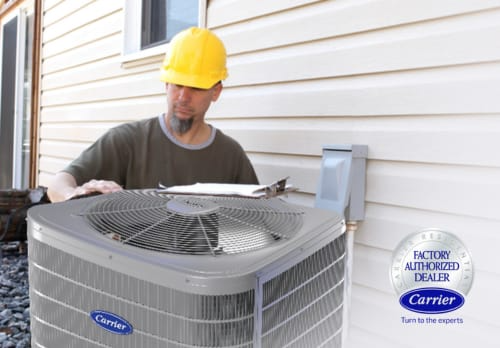
When your heating or cooling system breaks down, the last thing you want is to be caught off guard by unexpected repair costs. In a city like Oshawa, where winters can be harsh and summers increasingly humid, having a dependable HVAC system isn’t just a comfort—it’s a necessity.
But how much should you really expect to pay when your furnace stops working or your AC starts acting up? Understanding the costs involved in HVAC repairs can help you plan better, avoid unnecessary expenses, and know when it’s time to call in the pros. Let’s walk through the most common issues, what affects pricing, and how you can keep repair bills manageable.
Common HVAC Issues That Affect Costs
No HVAC system is immune to wear and tear, especially after years of use. While some issues are minor and easy to fix, others can turn into costly repairs if left too long.
Furnace and Air Conditioner Breakdowns
Furnaces may fail to produce heat due to ignition problems or worn-out components. Air conditioners, on the other hand, often suffer from clogged filters, frozen coils, or failing compressors. These kinds of breakdowns can cost anywhere from a quick fix to a few hundred dollars depending on the complexity of the job.
Refrigerant Leaks and Thermostat Malfunctions
Low refrigerant levels not only reduce cooling efficiency but can also damage your AC’s compressor. Locating and sealing a leak, followed by a recharge, isn’t cheap. Faulty thermostats, while less expensive, can still throw off your system’s operation if not addressed promptly.
Electrical and Airflow Issues
Faulty wiring, broken fan motors, or blocked ductwork can cause inconsistent heating or cooling. These are issues that might not be obvious at first but can worsen your system’s performance over time—and drive up your utility bills too.
Factors That Influence HVAC Repair Costs
Not every repair comes with the same price tag. Several elements influence what you’ll end up paying, and understanding them can help you better evaluate quotes from service providers.
Type and Age of the System
Older HVAC units often require harder-to-find parts, and some may no longer be supported by the manufacturer. The type of system you have—whether it’s a central AC, ductless mini-split, or gas furnace—also affects pricing due to differences in labor time and part availability.
Urgency and Time of Service
Need emergency service on a Sunday evening in the middle of winter? That’ll likely cost you more than a regular weekday appointment. Many contractors charge a premium for off-hours or urgent calls, especially during peak seasons when technicians are in high demand.
Part Replacement vs. Full System Repair
Sometimes a minor part like a capacitor or contactor is all that needs replacing. Other times, it’s a major component like the heat exchanger or blower motor. Repairs that involve diagnostics, labor-intensive replacements, or multiple parts can add up quickly. And if your system is nearing the end of its lifespan, it may be more economical to consider replacement rather than ongoing repairs.
Average Cost Range for HVAC Repairs in Oshawa
Let’s break down what you might actually pay in Oshawa for common HVAC services. Keep in mind that prices can vary between companies, but these ranges offer a good starting point.
Typical Service Call Fees
Most HVAC companies charge a base fee just to diagnose the issue—this can range from $90 to $150. This doesn’t include the actual repair, just the time to inspect and identify the problem.
Average Pricing for Common Repairs
- Thermostat replacement: $100–$250
- Capacitor or contactor replacement: $150–$300
- Fan motor repair: $250–$600
- Refrigerant recharge: $300–$700
- Heat exchanger replacement: $1,000 or more
These prices can shift based on the brand, system type, and technician availability.
When Repair Costs Might Justify Replacement
If your system is over 15 years old and needs frequent attention, it might be time to consider replacing it entirely. Major repairs that cost over 50% of a new system’s price often signal that a replacement would offer better value and efficiency in the long run.
How to Reduce Unexpected HVAC Expenses
While no one can completely avoid HVAC issues, there are definitely ways to keep costs under control.
Regular Maintenance Tips
Simple actions like changing filters regularly, keeping vents clear, and scheduling annual tune-ups can go a long way. Technicians can often spot small issues before they become major (and expensive) problems.
Choosing the Right Service Provider
Not all HVAC companies are equal. Look for licensed professionals with good reviews, transparent pricing, and a solid track record. It’s also smart to compare a few quotes before agreeing to any major work.
Importance of Warranties and Service Plans
Some providers offer maintenance plans that include annual inspections and discounted repair services. If your system is still under warranty, that might cover parts (and sometimes labor), which can significantly reduce what you owe out of pocket.
Final Thoughts
HVAC repairs aren’t something homeowners in Oshawa can ignore, especially with the city’s mix of weather extremes. The more you understand about what affects repair costs—from the type of issue to when and how you book service—the better prepared you’ll be to handle them without added stress.
Whether you’re facing an issue right now or just want to be proactive, working with trusted local professionals for HVAC repairs in Oshawa can make a real difference in both cost and peace of mind.
